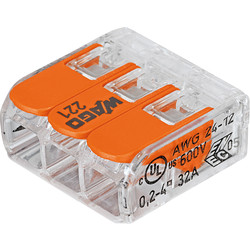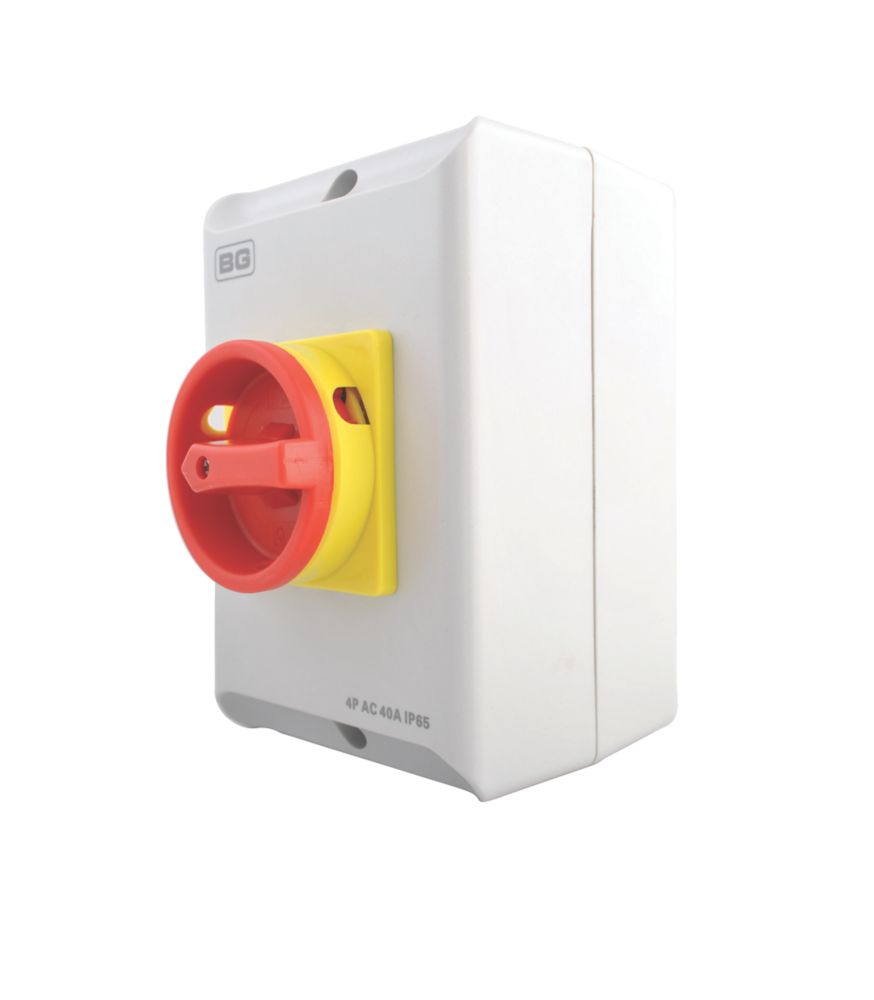You are using an out of date browser. It may not display this or other websites correctly.
You should upgrade or use an alternative browser.
You should upgrade or use an alternative browser.
32A Industrial socket for cooker?
- Thread starter DIYbot2
- Start date
Depends how high your load is but will mean Running a larger cable and a larger MCB. Also why on Earth are you wanting to plug in some kind of Mixer into a kitchen circuitSo how would I terminate a larger load for a domestic 230V live supply?
The kitchen isn’t far from where I want to run it and I wasn’t currently wanting to run new circuits from the fuse board as I’d have to chop through quite a bit of fairly new work to run them. Opening the kitchen door when it needs to be run seems feasible and the circuit already installed should be up to the load
You could try saying what MCBs are allowed/commonly found for normal 3-pin socket circuits, and what those sockets are rated at.It is a 32amp rated socket on a 40 MCB. Need we say more?
I had one once, not for plugging other stuff in but because we had a free-standing cooker we wanted to be able to move out for cleaning. The gas connection was a hose into a bayonet connector, so that came off, and it made sense for the electrical connection to do the same.Hi, I have a direct wired cooker on a 40A type B MCD. Is it ok to switch out the direct wire for a 32A 3-pin industrial socket (so the cooker could be unplugged and something else plugged in from time to time in a domestic installation?
The sky did not fall in, the house did not catch fire, and I never noticed any dead bodies.
I would terminate the cooker circuit in a junction box using these Wago connectors. Then when you need to swap between mixer and cooker you isolate the circuit at the CU and swap.

 www.toolstation.com
www.toolstation.com
If you're going to be doing this regularly then maybe also fit an isolator at the cooker point:

 www.screwfix.com
www.screwfix.com

Wago 221 3 Way Compact Lever Connectors
A three-way compact splicing connector with handy lever for quick and hassle-free installations. Use this pack of reusable Wago 221 connectors for solid, stranded and flexible cables.These connectors couldn’t be easier to use – simply pull the lever up, insert a stripped conductor and push the...
If you're going to be doing this regularly then maybe also fit an isolator at the cooker point:

British General CPRSD440 40A 4-Pole Rotary Isolator Switch NO - Screwfix
Order online at Screwfix.com. 4-pole rotary isolator switch disconnector used to switch power to commercial / light industrial applications. Can be used as an emergency stop and can be locked in the off position using a padlock (not supplied). Switch is interlocked with the lid to prevent...
One obviously could do that, but I would think it would represent the antithesis of 'convenience' !I would terminate the cooker circuit in a junction box using these Wago connectors. Then when you need to swap between mixer and cooker you isolate the circuit at the CU and swap. ...
One could also do that - but why are you suggesting a 4-pole isolator?If you're going to be doing this regularly then maybe also fit an isolator at the cooker point:
Kind Regards, John
Sure about that?A normal 3 pin socket is .. limited to that by a fuse in it’s plug.
So your concern about a "32amp rated socket on a 40 MCB" - is it overloads or faults?A 32 amp industrial socket has no fuse in its plug.
Your second 'yes' does not answer the question as toi whether your concern is about overload currents or fault currents.Yes and yes.
The MC exists only to protect the cables, not accessories. I presume you would be 'happy' with a socket 'rated at 32A' to be protected by a 32A MCB, but such an MCB would allow about 36A to flow indefinitely or about 46A to flow for an hour, without tripping.
Furthermore, for what it's worth, I'm sure that, in practice, a "32A socket" could carry a lot more than 32A without coming to any harm. There are some issues, but I wouldn't personally loose any sleep over this particular one.
Kind Regards, John
Yes and yes.So your concern about a "32amp rated socket on a 40 MCB" - is it overloads or faults?
Please explain how the cooker will overload the circuit.
Please explain how a 40A MCB will not provide fault protection.
Yes, and why on earth would you want to?Also, would there be any issues replacing the 40A type B MCD with a type D MCD (potentially a 32A one)?

